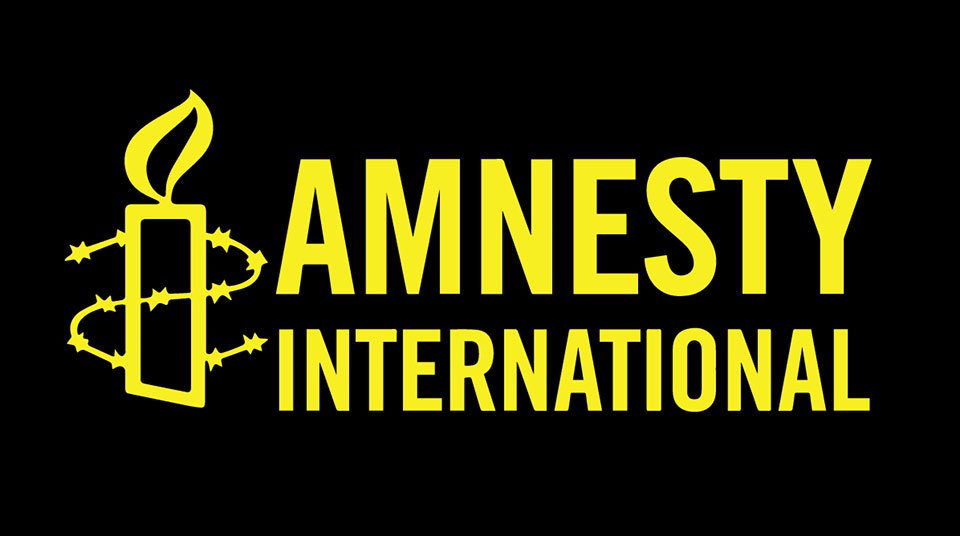
Amnesty International released a statement regarding the detention of Georgian doctor Vazha Gaprindashvili. As the organization stressed, both Russia and the de facto authorities must ensure that Vazha Gaprindashvili is immediately released from the detention and compensated for the harm he has suffered as a result.
On 9 November, the Russian border guards and security forces of the de facto authorities detained a Georgian doctor and resident of the Georgian capital Tbilisi, Vaja Gaprindashvili, as he was attempting to cross the ABL into the South Ossetia/Tskhinvali Region. The de facto authorities charged him with “illegally crossing the border” which carries a penalty of up to two years of imprisonment and he was remanded for two months in Tskhinvali.
Civilians found in violation of the “border regime” in the South Ossetia/Tskhinvali Region are typically fined and administratively detained before being released within a few days after paying a fine.
Vaja Gaprindashvili is one of four men detained in the South Ossetia/Tskhinvali Region for “illegally crossing the border” between 9 and 11 November. Three others have been fined and removed into Tbilisi-controlled territory. Vaja Gaprindashvili stands accused of a more serious “offence” because, according to the de facto authorities, he has intentionally “crossed the border”.
One of the other three, Shota Bidzinashvili, who spent nine days in detention in Tskhinvali together with Vaja Gaprindashvili, in a media interview complained that they were held in “a cold and humid basement without air.” According to Shota Bidzinashvili, his head was injured when he was placed inside the detention center but he was refused treatment or access to a medic, and he was denied food during the first three days of his detention.
There is an absolute prohibition of torture and other cruel, inhuman or degrading treatment or punishment under international law. Also, such detentions are arbitrary and constitute violations of the right to liberty and security of the person, contrary to Article 5 of the European Convention on Human Rights.
In these circumstances, both Russia and the de facto authorities must ensure that Vaja Gaprindashvili is immediately released from the detention and compensated for the harm he has suffered as a result. They must also ensure that no-one is subjected to torture and other ill-treatment in the territory under their control,’Amnesty International said.
Amnesty International added that the complete ban on movement between the breakaway territory of the South Ossetia/Tskhinvali Region and the rest of Georgia is undermining the human rights of local civilians. According to the information available to Amnesty International, the closure of the crossing points has particularly negatively affected older people, schoolchildren and university students and those in need of medical care. Older people have not been able to cross the ABL to receive their state pension in the Tbilisi-controlled territory since September with a consequential drastic impact on their standard of living.
‘Since early September, the de facto authorities in the South Ossetia/Tskhinvali Region suspended freedom of movement across the only operating crossing points over the administrative boundary line (ABL) with the rest of Georgia, thereby further worsening the humanitarian situation by denying residents of the breakaway region access to medical care, social security benefits, education and family visits across the ABL.
Residents of the Akhalgori district of South Ossetia/Tskhinvali Region, many of whom do not hold the passports issued by the de facto South Ossetian authorities, regularly need to cross the ABL to access various services in the rest of Georgia.
According to the information available to Amnesty International, the closure of the crossing points has particularly negatively affected older people, schoolchildren and university students and those in need of medical care. Older people have not been able to cross the ABL to receive their state pension in the Tbilisi-controlled territory since September with a consequential drastic impact on their standard of living.
Schoolchildren and university students who were visiting their families in the district during a summer break were not able to return and resume their studies. People who could previously cross the ABL to receive medical care in Tbilisi-controlled territory, where a higher standard of free healthcare is available, and which they often could get more quickly in emergency, have been deprived of this opportunity. Local media have reported that there has been at least one fatality which has already resulted from the ban on freedom of movement.
In October, a family in the Akhalgori district alleged that their grandmother, 70-year-old Margo Martiashvili, passed away after the de facto authorities refused her to let her cross into the Tbilisicontrolled territory for urgent medical assistance. Freedom of movement of civilians in the South Ossetia/Tskhinvali Region has been severely restricted since the end of the Georgia-Russia conflict in 2008. However, before September, residents of the Akhalgori district and a few remote villages in the west of the Region could cross the ABL.
In September, the de facto authorities decided to close these crossing points. The de facto authorities declared that the decision to close the crossings was a response to Tbilisi opening a police post near the ABL in the vicinity of the village Tsnelisi in late August.
Under international human rights law freedom of movement can only be restricted to pursue certain legitimate objectives, must be consistent with other human rights and be a proportionate response. In the case of South Ossetia/Tskhinvali Region, while national security or public order grounds of this measure are in question, the complete ban enacted since September is a disproportionate response.
The result is an arbitrary and disproportionate restriction on freedom of movement for all affected local civilians with a resulting serious impact on a range of their civil, economic and social rights. The de facto authorities in the South Ossetia/Tskhinvali Region must open the closed crossing points over the ABL and respect and protect the rights of local civilians,’ the statement reads.








